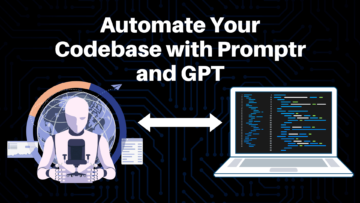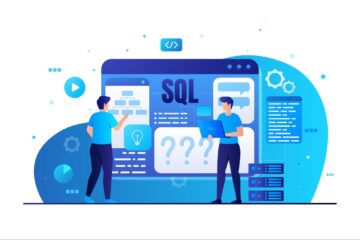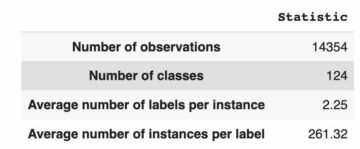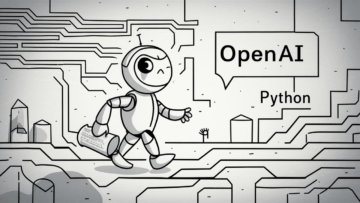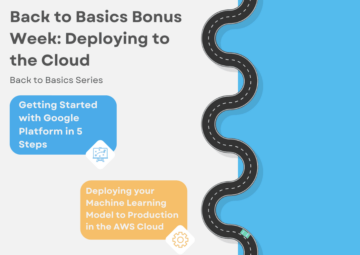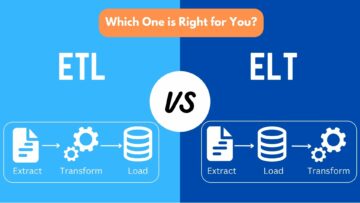
Image generated with DALLE-3
In the era of advanced language model applications, developers and data scientists are continuously seeking efficient tools to build, deploy, and manage their projects. As large language models (LLMs) like GPT-4 gain popularity, more people are looking to leverage these powerful models in their own applications. However, working with LLMs can be complex without the right tools.
That’s why I’ve put together this list of five essential tools that can significantly enhance the development and deployment of LLM-powered applications. Whether you’re just beginning or are a seasoned ML engineer, these tools will help you be more productive and build higher-quality LLM projects.
Hugging Face is more than just an AI platform; it’s a comprehensive ecosystem for hosting models, datasets, and demos. It supports various frameworks allowing users to train, fine-tune, evaluate, and generate content in multiple forms like images, text, and audio. The combination of a vast model selection, community resources, and developer-friendly APIs in one platform is why Hugging Face has become a go-to destination for many AI practitioners and ML engineers.
Learn how to fine-tune the Mistral AI 7B LLM using Hugging Face AutoTrain and push the model to Hugging Face Hub.
LangChain is a tool that uses a composability approach to build applications with LLMs. It is widely used to develop context-aware applications by integrating different sources of context with language models. Additionally, it can use a language model to reason about actions or responses based on the context provided. The LangChain AI team has recently introduced LangSmith, a new tool that provides a unified development platform to increase the speed and efficiency of LLM application production.
If you’re new to AI development, check out LangChain’s cheat sheet to understand Python API and other functionalities.
Qdrant is a Rust-based vector similarity search engine and database that provides a production-ready service with a simple API. It is tailored for extended filtering support, making it ideal for applications that use neural-network or semantic-based matching. Qdrant’s speed and reliability under high load make it a top choice for turning embeddings or neural network encoders into comprehensive applications for matching, searching, recommending, and more. You can also try a fully managed Qdrant Cloud service, including a free tier, available for ease of use.
Read the 5 Best Vector Databases You Must Try in 2024 to learn about other alternatives to Qdrant.
MLflow now includes support for LLMs, offering experiment tracking, evaluation, and deployment solutions. It simplifies the integration of LLM capabilities into applications by introducing features like the MLflow Deployments Server for LLMs, LLM Evaluation, and Prompt Engineering UI. These tools help in navigating the complex landscape of LLMs, comparing foundational models, providers, and prompts to find the best fit for your project.
Check out the list of 5 Free Courses to Master MLOps.
vLLM is a high-throughput and memory-efficient inference and serving engine for LLMs. Known for its state-of-the-art serving throughput and efficient attention key and value memory management, vLLM offers features like continuous batching, optimized CUDA kernels, and support for NVIDIA CUDA and AMD ROCm. Its flexibility and ease of use, including integration with popular Hugging Face models and various decoding algorithms, make it a valuable tool for LLM inference and serving.
Each of these five tools brings unique strengths to the table, whether it’s in hosting, context awareness, search capabilities, deployment, or efficiency in inference. By leveraging these tools, developers and data scientists can significantly streamline their workflows and elevate the quality of their LLM applications.
Gain inspiration and build 5 Projects with Generative AI Models and Open Source Tools.
Abid Ali Awan (@1abidaliawan) is a certified data scientist professional who loves building machine learning models. Currently, he is focusing on content creation and writing technical blogs on machine learning and data science technologies. Abid holds a Master’s degree in Technology Management and a bachelor’s degree in Telecommunication Engineering. His vision is to build an AI product using a graph neural network for students struggling with mental illness.
- SEO Powered Content & PR Distribution. Get Amplified Today.
- PlatoData.Network Vertical Generative Ai. Empower Yourself. Access Here.
- PlatoAiStream. Web3 Intelligence. Knowledge Amplified. Access Here.
- PlatoESG. Carbon, CleanTech, Energy, Environment, Solar, Waste Management. Access Here.
- PlatoHealth. Biotech and Clinical Trials Intelligence. Access Here.
- Source: https://www.kdnuggets.com/5-tools-to-help-build-your-llm-apps?utm_source=rss&utm_medium=rss&utm_campaign=5-tools-to-help-build-your-llm-apps
- :has
- :is
- a
- About
- actions
- Additionally
- advanced
- AI
- AI models
- AI platform
- algorithms
- Allowing
- also
- alternatives
- AMD
- an
- and
- api
- APIs
- Application
- applications
- approach
- apps
- ARE
- AS
- attention
- audio
- available
- awareness
- based
- batching
- BE
- become
- Beginning
- BEST
- blogs
- Brings
- build
- Building
- by
- CAN
- capabilities
- Certified
- check
- choice
- Cloud
- combination
- community
- comparing
- complex
- comprehensive
- content
- content-creation
- context
- continuous
- continuously
- courses
- creation
- Currently
- data
- data science
- data scientist
- Database
- databases
- datasets
- Decoding
- Degree
- Demos
- deploy
- deployment
- deployments
- destination
- develop
- developers
- Development
- different
- ease
- ease of use
- ecosystem
- efficiency
- efficient
- ELEVATE
- Engine
- engineer
- Engineering
- Engineers
- enhance
- Era
- essential
- evaluate
- evaluation
- experiment
- Face
- Features
- filtering
- Find
- fit
- five
- Flexibility
- focusing
- For
- forms
- foundational
- frameworks
- Free
- fully
- functionalities
- Gain
- generate
- generated
- generative
- Generative AI
- graph
- Graph Neural Network
- he
- help
- High
- his
- holds
- hosting
- How
- How To
- However
- HTML
- HTTPS
- Hub
- i
- ideal
- illness
- images
- in
- includes
- Including
- Increase
- Inspiration
- Integrating
- integration
- into
- introduced
- introducing
- IT
- ITS
- just
- KDnuggets
- Key
- known
- landscape
- language
- large
- LEARN
- learning
- Leverage
- leveraging
- like
- List
- load
- looking
- loves
- machine
- machine learning
- make
- Making
- manage
- managed
- management
- many
- master
- matching
- Memory
- mental
- Mental illness
- ML
- model
- models
- more
- multiple
- must
- navigating
- network
- Neural
- neural network
- New
- now
- Nvidia
- of
- offering
- Offers
- on
- ONE
- open
- open source
- optimized
- or
- Other
- out
- own
- People
- platform
- plato
- Plato Data Intelligence
- PlatoData
- Popular
- popularity
- powerful
- Product
- Production
- productive
- professional
- project
- projects
- prompts
- provided
- providers
- provides
- Push
- put
- Python
- quality
- RE
- reason
- recently
- recommending
- reliability
- Resources
- responses
- right
- s
- Science
- Scientist
- scientists
- Search
- search engine
- searching
- seasoned
- seeking
- selection
- server
- service
- serving
- significantly
- Simple
- simplifies
- Solutions
- Source
- Sources
- speed
- state-of-the-art
- streamline
- strengths
- Struggling
- Students
- support
- Supports
- table
- tailored
- team
- Technical
- Technologies
- Technology
- telecommunication
- text
- than
- that
- The
- their
- These
- this
- throughput
- tier
- to
- together
- tool
- tools
- top
- Tracking
- Train
- try
- Turning
- ui
- under
- understand
- unified
- unique
- use
- used
- users
- uses
- using
- Valuable
- value
- various
- Vast
- Ve
- vision
- whether
- WHO
- why
- widely
- will
- with
- without
- workflows
- working
- writing
- you
- Your
- zephyrnet

